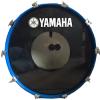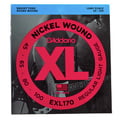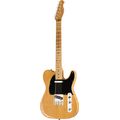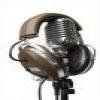Laptop specs needed for recording and/or video editing

Member
Posts: 20
Joined: Apr 15, 2015
Hello guys, I hope you could help me with this query and probably some people also may find this helpful. I am planning on buying a new laptop as the current one I am using is quite laggish, and I have been using it for almost 6 years already (yeah, I know that is something) And since I am addicted to wikiloops, I want a laptop that would serve me good for recording and/or video editing. I am not good at specification of laptops so I figure there may be some of you right here who knows what I am looking for.
What specs do I basically need for a laptop that would be good for recording? Some people say I need an I3, I5 or I7 with dual or quad core processor, but aside from that I am thinking there might be still something which I don't know. And to specify the question..
Can I3 processor handle it with very minor lags, or do I have to have more powerful procesors to avoid this.
Some say get I5 or I7 processor, but other say you can have I3 and it makes less difference, is this true?
I might not actually want the best processors as of the moment, or do I? I am on the hunt on a classified sections for second hands. So with your help I might find one that serves good.
I found three laptops on our local online shops here that I find interesting
1. Toshiba Portege R (not specifically mentioned) I7
2. DELL E6320 2nd GEN quad core i3
3. DELL LATITUDE E4310 Quad Core i5
If you can recommend a specific brand or model that would be great.
Thank you in advance!
What specs do I basically need for a laptop that would be good for recording? Some people say I need an I3, I5 or I7 with dual or quad core processor, but aside from that I am thinking there might be still something which I don't know. And to specify the question..
Can I3 processor handle it with very minor lags, or do I have to have more powerful procesors to avoid this.
Some say get I5 or I7 processor, but other say you can have I3 and it makes less difference, is this true?
I might not actually want the best processors as of the moment, or do I? I am on the hunt on a classified sections for second hands. So with your help I might find one that serves good.
I found three laptops on our local online shops here that I find interesting
1. Toshiba Portege R (not specifically mentioned) I7
2. DELL E6320 2nd GEN quad core i3
3. DELL LATITUDE E4310 Quad Core i5
If you can recommend a specific brand or model that would be great.
Thank you in advance!
+1

Member
Posts: 522
Joined: Feb 27, 2015
Big question, Kenny!
First off, disk I/O is what you really need. This will dictate how many tracks you can record/play back simultaneously. Basically, you need a laptop with an SSD in it, not a traditional hard drive. Most good laptops have SSDs as standard now.
CPU. This is important as it will determine how many plugins, etc., you can use concurrently. If you can, go i5 or i7 Quad Core.
RAM. Like CPU, this will determine how many plugins you can run simultaneously. These days you need 8GB minimum under Windows, 16GB with a Mac.
Of course, the biggest enemy of recording is that beast known as 'latency'. Your recording interface and its drivers control this, but the spec. of the laptop will help keep this down too. If under Windows, you really need to be getting <10ms latency from you recording interface (usually with ASIO drivers).
In all honesty, it's down to budget. I know they cost significantly more but I'm afraid Macs blow Windows out of the water for this sort of work and is far less hassle to boot. The built-in Core Audio works out-of-the-box - no messy ASIO drivers to install and configure for your interface. Just plug it in and off you go (assuming your interface supports Core Audio which 99% of them do). It'll give you sub 10-millisecond latency. I'd sooner buy a dual core MacBook Pro which is a couple of years old than a more recent, pepped-up Windows machine. I'm not being a Mac fanboy, just telling the truth (as I perceive it though).
Any MacBook Pro from, say, 2013 onwards will be more than up to the job. There's always plenty on eBay.
Windows-wise. Anything from Dell, Toshiba, Lenovo and Acer are perfectly good bets. My work Laptop is a brand-new Toshiba Satellite with windows 10, 16gb RAM, 256 SSD and a quad core i5 and it absolutely motors along. It cost [my employer] £700 new. I'd have no problem running Reaper and recording with it, except...
... Be careful with modern Windows laptops. Firewire has largely been dropped in favour of USB 3.0 and Thunderbolt. Obvisouly if your interface is USB then you have little to worry about. Make sure whatever you go for can support your recording interface. For example, my interface is a Firewire 800 connection. I cannot use it with my work laptop because there's no Firewire and I have to use a (£25!!!) Thunderbolt to Firewire adapter on my MacBook Pro in order to record.
And one last thing: buy a 1 or 2TB backup drive. SSDs in laptops tend to offer less storage than traditional hard drives and if you do lots of recordings, those WAVs won't take long to fill it up. Once I publish a loop, I immediately archive it to my storage drive and remove it from my Mac.
Sorry for the lengthy reply - hope it helps.
First off, disk I/O is what you really need. This will dictate how many tracks you can record/play back simultaneously. Basically, you need a laptop with an SSD in it, not a traditional hard drive. Most good laptops have SSDs as standard now.
CPU. This is important as it will determine how many plugins, etc., you can use concurrently. If you can, go i5 or i7 Quad Core.
RAM. Like CPU, this will determine how many plugins you can run simultaneously. These days you need 8GB minimum under Windows, 16GB with a Mac.
Of course, the biggest enemy of recording is that beast known as 'latency'. Your recording interface and its drivers control this, but the spec. of the laptop will help keep this down too. If under Windows, you really need to be getting <10ms latency from you recording interface (usually with ASIO drivers).
In all honesty, it's down to budget. I know they cost significantly more but I'm afraid Macs blow Windows out of the water for this sort of work and is far less hassle to boot. The built-in Core Audio works out-of-the-box - no messy ASIO drivers to install and configure for your interface. Just plug it in and off you go (assuming your interface supports Core Audio which 99% of them do). It'll give you sub 10-millisecond latency. I'd sooner buy a dual core MacBook Pro which is a couple of years old than a more recent, pepped-up Windows machine. I'm not being a Mac fanboy, just telling the truth (as I perceive it though).
Any MacBook Pro from, say, 2013 onwards will be more than up to the job. There's always plenty on eBay.
Windows-wise. Anything from Dell, Toshiba, Lenovo and Acer are perfectly good bets. My work Laptop is a brand-new Toshiba Satellite with windows 10, 16gb RAM, 256 SSD and a quad core i5 and it absolutely motors along. It cost [my employer] £700 new. I'd have no problem running Reaper and recording with it, except...
... Be careful with modern Windows laptops. Firewire has largely been dropped in favour of USB 3.0 and Thunderbolt. Obvisouly if your interface is USB then you have little to worry about. Make sure whatever you go for can support your recording interface. For example, my interface is a Firewire 800 connection. I cannot use it with my work laptop because there's no Firewire and I have to use a (£25!!!) Thunderbolt to Firewire adapter on my MacBook Pro in order to record.
And one last thing: buy a 1 or 2TB backup drive. SSDs in laptops tend to offer less storage than traditional hard drives and if you do lots of recordings, those WAVs won't take long to fill it up. Once I publish a loop, I immediately archive it to my storage drive and remove it from my Mac.
Sorry for the lengthy reply - hope it helps.

Daddario EXL170
Electric Bass String Set

$20.90
iThis widget links to Thomann, our affiliate partner. We may receive a commission when you purchase a product there.
Visit Shop

Member
Posts: 20
Joined: Apr 15, 2015
Thank you so much Martin!!!
About the sdd thing, how much do I need? Unfortunately and I don't know why, I can only find laptops with HDD here, It seems I am living in a technologically remote place. Or probably I have to search more, how could I be so ignorant about this..
What do you think about 4 gb ram? Would that be okay or that would create some problems (in the future?) I know that's a silly question but I can't see some 2nd hands with 8gb ram on our local online shop
I would really love to choose MacBook pro, and the user's testimonies of how good it is really overwhelming. However, I am not familiar with it. I was using windows since the time I learn how to use computers. Macbook's are not so common here in the PHils particularly in my town because of it's pricetag. But if given the possibility that I could buy one, I might take lots of time learning it, so I guess I'd stick to windows for the moment :)
And thank you for the suggestion on the backup thing, I surely need one of those!
Cheers!
About the sdd thing, how much do I need? Unfortunately and I don't know why, I can only find laptops with HDD here, It seems I am living in a technologically remote place. Or probably I have to search more, how could I be so ignorant about this..
What do you think about 4 gb ram? Would that be okay or that would create some problems (in the future?) I know that's a silly question but I can't see some 2nd hands with 8gb ram on our local online shop
I would really love to choose MacBook pro, and the user's testimonies of how good it is really overwhelming. However, I am not familiar with it. I was using windows since the time I learn how to use computers. Macbook's are not so common here in the PHils particularly in my town because of it's pricetag. But if given the possibility that I could buy one, I might take lots of time learning it, so I guess I'd stick to windows for the moment :)
And thank you for the suggestion on the backup thing, I surely need one of those!
Cheers!
Member
Posts: 374
Joined: Mar 25, 2012
I would very much stay away from acer. Had nothing but bad experience from them.
About latency: It is unavoidable. (period) The reason for that is that data is buffered in different stages of the recording process. And that is not a bad thing per se as long as the asio driver reports the correct value. The problem here is that usb is not designed for since it is very load dependent. This can result in the reported value deviating from the real one, which is a bad thing.
There are recently a number of usb 3.0 audio interfaces available which promise to perform better but the majority is usb 2
One option with the harddrive would be using something called a hybrid drive which is a combination of a small SSD and a standard harddrive. I haven't tested then specifically with audio though.
There are purpose built audio/DAW laptops available, use google and your judgement.
About latency: It is unavoidable. (period) The reason for that is that data is buffered in different stages of the recording process. And that is not a bad thing per se as long as the asio driver reports the correct value. The problem here is that usb is not designed for since it is very load dependent. This can result in the reported value deviating from the real one, which is a bad thing.
There are recently a number of usb 3.0 audio interfaces available which promise to perform better but the majority is usb 2
One option with the harddrive would be using something called a hybrid drive which is a combination of a small SSD and a standard harddrive. I haven't tested then specifically with audio though.
There are purpose built audio/DAW laptops available, use google and your judgement.

Member
Posts: 8
Joined: Oct 21, 2015
IT person checking in. I'm just going to give you some bullet points, in no particular order.
Acer - complete and utter crap. Don't do it, no matter how good a deal it seems. Don't. I've had good experiences with HP, Dell and Lenovo. I can't give you any advice on Apple products.
Storage - As mpointon has said, storage speed is very important. I strongly recommend SSD. Most "affordable" SSD drives (especially in laptops) are actually a combination of traditional mechanical drive and SSD (see nilton's comment). Once your disk starts to fill, the majority of your data will be on the mechanical storage, and you'll absolutely notice the difference in performance. A completely SSD drive will hurt your hip pocket, but you'll be thankful for it. That said, a hybrid drive is still better than a fully mechanical drive.
As he also pointed out, SSD drives tend to be lower capacity than their mechanical counterparts. This will be less of an issue in the next year or two as we see mechanical drive technology give way to commoditised SSD. For now, there is a big difference. As an example, if I want a top of the line SSD 2TB drive, that'll cost me around $1400AUD. By comparison, I can buy a mechanical 8TB drive for around $400AUD (these are desktop drives, but I hope you'll see my point). So you'll need to weigh up what you can afford vs how much storage you need vs performance. Consider also that mechanical drive speed is limited by rotation speed. As a general rule, performance (and cost, too) in storage goes like this: SSD > 7200 RPM mechanical (or SSD hybrid) > 5400 RPM mechanical.
Storage capacity is another factor. It's all well and good to buy a system with, say, a 128GB disk, but consider that the operating system will take anywhere between 10 and 40GB. Then your installed programs will require an amount of space, and that's before you even start doing anything with your computer. Music files can become very large.
RAM - 4GB is not enough. No. Don't settle for it. It's barely enough for today's applications, and will severely limit how much you can do in the future. 8GB should be an absolute lower limit. RAM is so cheap these days that you're not doing yourself any favours by saving a few bucks on it. [i]Make sure the operating system is 64-bit.[/i] 32-bit operating systems can't recognise greater than 4GB of RAM.
Another thing to consider (and this comes back to storage speed): When your computer runs low on RAM, it will start switching in-memory data to your hard disk. This is called paging. A computer low on RAM will start smashing the disk. Disk is much, much slower than RAM (unless you're fully SSD). You'll feel the system slow to a crawl. If your storage can't cope with the hit, you'll be in trouble. If you can't afford SSD, then make sure you have as much RAM in your machine as you can afford.
CPU - Don't waste money on an i3. It's the low end of the CPU range and will feel the strain of what you'll demand of it. An i5 or, better yet, an i7 should be what you're looking for.
Screen size - The screen can get pretty "busy" in DAW software, so a bigger screen can be very helpful. This will influence the cost of your laptop, especially if you go for a touch-sensitive screen. I can't give you much advice on this, but you need to think about it. A bigger screen will make it easier to see things, but you'll also have a bigger and heavier laptop. There's a tradeoff here.
When I was in the market for a bass, the best advice I received was "buy the nicest bass you can afford". This same advice applies to computers, too. Build some future-proofing into your purchase. What might seem like overkill today will result in a computer that meets your needs much longer than a budget/low-spec model.
I get that you don't have money to burn on this (nobody does!). And I've probably given you too much detail here. I hope that I have at least convinced you not to go low-end on this purchase.
Max
Acer - complete and utter crap. Don't do it, no matter how good a deal it seems. Don't. I've had good experiences with HP, Dell and Lenovo. I can't give you any advice on Apple products.
Storage - As mpointon has said, storage speed is very important. I strongly recommend SSD. Most "affordable" SSD drives (especially in laptops) are actually a combination of traditional mechanical drive and SSD (see nilton's comment). Once your disk starts to fill, the majority of your data will be on the mechanical storage, and you'll absolutely notice the difference in performance. A completely SSD drive will hurt your hip pocket, but you'll be thankful for it. That said, a hybrid drive is still better than a fully mechanical drive.
As he also pointed out, SSD drives tend to be lower capacity than their mechanical counterparts. This will be less of an issue in the next year or two as we see mechanical drive technology give way to commoditised SSD. For now, there is a big difference. As an example, if I want a top of the line SSD 2TB drive, that'll cost me around $1400AUD. By comparison, I can buy a mechanical 8TB drive for around $400AUD (these are desktop drives, but I hope you'll see my point). So you'll need to weigh up what you can afford vs how much storage you need vs performance. Consider also that mechanical drive speed is limited by rotation speed. As a general rule, performance (and cost, too) in storage goes like this: SSD > 7200 RPM mechanical (or SSD hybrid) > 5400 RPM mechanical.
Storage capacity is another factor. It's all well and good to buy a system with, say, a 128GB disk, but consider that the operating system will take anywhere between 10 and 40GB. Then your installed programs will require an amount of space, and that's before you even start doing anything with your computer. Music files can become very large.
RAM - 4GB is not enough. No. Don't settle for it. It's barely enough for today's applications, and will severely limit how much you can do in the future. 8GB should be an absolute lower limit. RAM is so cheap these days that you're not doing yourself any favours by saving a few bucks on it. [i]Make sure the operating system is 64-bit.[/i] 32-bit operating systems can't recognise greater than 4GB of RAM.
Another thing to consider (and this comes back to storage speed): When your computer runs low on RAM, it will start switching in-memory data to your hard disk. This is called paging. A computer low on RAM will start smashing the disk. Disk is much, much slower than RAM (unless you're fully SSD). You'll feel the system slow to a crawl. If your storage can't cope with the hit, you'll be in trouble. If you can't afford SSD, then make sure you have as much RAM in your machine as you can afford.
CPU - Don't waste money on an i3. It's the low end of the CPU range and will feel the strain of what you'll demand of it. An i5 or, better yet, an i7 should be what you're looking for.
Screen size - The screen can get pretty "busy" in DAW software, so a bigger screen can be very helpful. This will influence the cost of your laptop, especially if you go for a touch-sensitive screen. I can't give you much advice on this, but you need to think about it. A bigger screen will make it easier to see things, but you'll also have a bigger and heavier laptop. There's a tradeoff here.
When I was in the market for a bass, the best advice I received was "buy the nicest bass you can afford". This same advice applies to computers, too. Build some future-proofing into your purchase. What might seem like overkill today will result in a computer that meets your needs much longer than a budget/low-spec model.
I get that you don't have money to burn on this (nobody does!). And I've probably given you too much detail here. I hope that I have at least convinced you not to go low-end on this purchase.
Max

Member
Posts: 20
Joined: Apr 15, 2015
Woah! I really am thankful to you guys for all your responses!!! Thanks Nilton, Martin and Maxxie!!
Now I have to wait and save to be sure :)
Now I have to wait and save to be sure :)

Member
Posts: 22
Joined: Nov 13, 2015
I recently bought a new i5 Lenovo laptop with 8gb RAM. I very much doubted it's recording ability due to it's sluggish response - and I didn't bother even trying to record anything at first. To speed things up I uninstalled the bloatware, which included Superfish malware which Lenovo had very thoughtfully also installed... :( Even after uninstalling I still found Superfish present and had to manually delete. Next, I stopped various processes that were not needed in order to free up RAM.
The laptop became much more responsive, and I decided to try recording something. I was worried about latency - in fact I was convinced that latency was going to be a problem. I connected the USB audio interface (ZOOM H1) and monitored from that unit. As I recorded the guitar, I was playing fractionally ahead of the beat to minimise the imagined latency - it felt unnatural but somehow I thought I would need to do this.
When I finished the track, it became clear that I was indeed playing ahead of the beat. So, my conclusion is that the interface is a big part of the equation, and in this case the ZOOM is allowing me to play and record with zero latency. I will just say that I am not using a complicated program - just Audacity. I have not needed to install ASIO4ALL.
Although I have been happy with the results so far, I must say that I am using outboard FX - not plugins. The guitar goes to a ZOOM 9030 and then to the ZOOM H1 stereo line in. I have no experience at all using plugins and I don't know if the H1 will provide zero latency monitoring in this way.
The laptop became much more responsive, and I decided to try recording something. I was worried about latency - in fact I was convinced that latency was going to be a problem. I connected the USB audio interface (ZOOM H1) and monitored from that unit. As I recorded the guitar, I was playing fractionally ahead of the beat to minimise the imagined latency - it felt unnatural but somehow I thought I would need to do this.
When I finished the track, it became clear that I was indeed playing ahead of the beat. So, my conclusion is that the interface is a big part of the equation, and in this case the ZOOM is allowing me to play and record with zero latency. I will just say that I am not using a complicated program - just Audacity. I have not needed to install ASIO4ALL.
Although I have been happy with the results so far, I must say that I am using outboard FX - not plugins. The guitar goes to a ZOOM 9030 and then to the ZOOM H1 stereo line in. I have no experience at all using plugins and I don't know if the H1 will provide zero latency monitoring in this way.
Member
Posts: 374
Joined: Mar 25, 2012
Just a quick comment:
ASIO4ALL is a wrapper for audio devices that lack a proper ASIO driver and makes it possible to use these devices with software that demand ASIO. As a such it cannot a will not report a correct latency value. Do not use it unless you really have to.
ASIO4ALL is a wrapper for audio devices that lack a proper ASIO driver and makes it possible to use these devices with software that demand ASIO. As a such it cannot a will not report a correct latency value. Do not use it unless you really have to.

Harley Benton TE-52 NA Vintage Series
Electric Guitar

$145
iThis widget links to Thomann, our affiliate partner. We may receive a commission when you purchase a product there.
Visit Shop
Member
Posts: 7
Joined: Nov 16, 2015
Believe it or not - I'm doing quite well with a late model macbook / macbook air - buy a macbook pro if you are video editing though.
SUPPORTER
Posts: 2096
Joined: Sep 27, 2014
Interesting....I am still using an old 2006 :O Acer Aspire 9813 notebook with a T5500 dual core processor 1.66 GHz, 667 MHz, 20" screen, an SSD drive which I bought some time ago, 4 GB ram , and I use it with Cubase 8 or Audacity and I never had problems to be honest.
I record directly into the microphone socket (not USB), and once I determined the latency using the methods described in the help sections I had no trouble whatsoever...
I record directly into the microphone socket (not USB), and once I determined the latency using the methods described in the help sections I had no trouble whatsoever...
+1

Member
Posts: 1
Joined: Sep 19, 2019
Laptop specs for recording and video editing are:
8th Gen. Core i7 or better
16GB DDR4 RAM
Graphics Card with 6GB VRAM
512GB SSD
FHD or 4K display with good refresh rate.
Reference: https://mylaptopguide.com/best-laptop-for-video-editing/ and https://mylaptopguide.com/best-gaming-laptop-under-1000/
8th Gen. Core i7 or better
16GB DDR4 RAM
Graphics Card with 6GB VRAM
512GB SSD
FHD or 4K display with good refresh rate.
Reference: https://mylaptopguide.com/best-laptop-for-video-editing/ and https://mylaptopguide.com/best-gaming-laptop-under-1000/
+1
wikiloops online jamsessions are brought to you with friendly
support by:

A friendly and welcoming place, it gives me the chance to be creative and have so much fun with an amazingly talented community. Thanks!
Shi